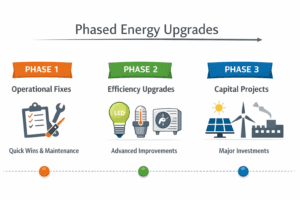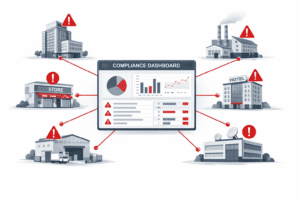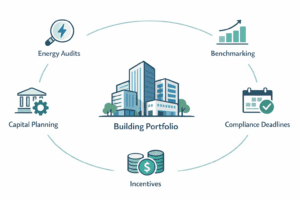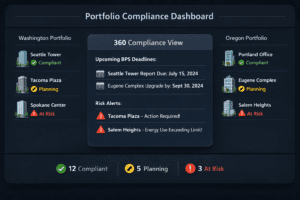The contracting industry has traditionally been a bulwark of stability in the ever-fluctuating landscape of economic trends. As the backbone of urban development and infrastructure growth, its importance cannot be overstated. Today, this industry stands at a digital crossroads, with innovative technologies knocking at its door, ready to redefine its future.
I. Introduction
The Pillars of the Contracting Industry
Contracting is a multifaceted industry that encompasses numerous specializations, from construction to project management and beyond. It’s an industry known for its resilience, commitment to quality, and the sheer scale of its operations. Foundational to modern society, contracting is integral to the growth of cities, the expansion of transportation networks, and the maintenance of public utilities.
Embracing Technological Evolution
However, the industry’s traditional stability often comes packaged with a resistance to change. This has meant that new technologies, while occasionally met with interest, have not been integrated as rapidly as in other sectors. But as digital tools become more sophisticated and the benefits more apparent, a newfound impetus for technological adoption is emerging within the industry.
II. The Current State of the Contracting Industry
Balance of Strengths and Obstacles
Contracting businesses have long thrived on their ability to deliver durable results and their deep understanding of the materials and methods required to do so. However, several intrinsic issues, such as project delays, cost overruns, and labor shortages, frequently mar the industry, suggesting that despite its methodical approach, there is significant room for improvement.
The Necessity for a Technological Revamp
The industry’s labor-intensive nature and the complexity of its projects mean that any technological innovations that can streamline operations, mitigate risks, and cut costs are not just welcome; they are essential. The blossoming of digital solutions offers a new pathway, potentially leading to an era of greater efficiency, precision, and profitability.
III. The Impact of Technology on the Contracting Industry
Early Technological Wins
Contractors are noticing that even elementary digital tools can have a profound impact. Communication apps and collaboration platforms have minimized misunderstandings. Simultaneously, digital blueprints and 3D modeling have significantly improved the planning phase of projects, reducing work, and saving both time and money.
The Foundation for Digital Transformation
As the industry transitions into more complex technological applications, these initial steps lay the groundwork for a broader digital transformation. They exemplify how even incremental changes in technology adoption can lead to significant improvements in traditional workflows.
IV. Pioneering Technologies Transforming Contracting
a. AI and Machine Learning: The Vanguard of Innovation
Upgrading Contractual and Management Processes
Intelligent algorithms are now capable of parsing contracts more efficiently than human counterparts, extracting key terms, obligations, and deliverables with astonishing speed and accuracy. Machine Learning models can be trained on datasets comprising thousands of completed projects to identify patterns that would otherwise go unnoticed.
Project Implementation Enhanced by Predictive Capacities
AI and ML are not just aiding in management but actively enhancing on-the-ground implementation. Through the analysis of vast datasets, AI can assist in resource allocation, optimize scheduling, and predict project delays before they occur, allowing for preemptive measures to be taken.
b. Blockchain: A Trust-Enhancing Technology
Securing Transactions and Contracts
Blockchain is setting new standards for security and trust in transactions. Its distributed nature means that information, once entered, cannot be altered without consensus, thereby eliminating many of the fraud and discrepancy concerns that have long plagued the industry.
Smart Contracts: Automating Compliance and Execution
Smart contracts leverage blockchain technology to enforce contracts in real-time, automating the execution of contract terms as predefined conditions are met. This not only speeds up the overall process but also significantly reduces the potential for disputes.
c. Big Data and Analytics: The New Decision-Making Paradigm
Strategic Insights Through Data Analysis
Contractors who employ data analytics can make sense of previously overwhelming data sets, gleaning insights that inform better bidding strategies, project planning, and risk management approaches. This level of analysis was unattainable in the past and represents a quantum leap forward for the industry.
Performance Optimization Through Predictive Analytics
More advanced still is the use of predictive analytics, which not only identifies trends but also predicts outcomes, allowing contractors to stay ahead of potential issues and dynamically adjust their strategies in response to projected future scenarios.
V. The Future of Contracting: Predictions and Preparations
Technological Synergy: The Integrated Approach
The contracting industry’s future will likely be characterized by a seamless integration of technology where digital tools are just as much a part of the toolkit as hammers and drills. This will necessitate a symbiotic relationship between technology providers and contracting professionals, fostering an environment where innovation is not only implemented but also actively developed.
Overcoming Barriers to Adoption
Transitioning to a tech-centric approach will involve overcoming various barriers, including the substantial investment required for technology adoption, the digital upskilling of the workforce, and navigating the regulatory landscape that is still catching up to these new advancements.
Readying for a Digital Renaissance
To prepare for this shift, contracting businesses will need to prioritize strategic planning that includes technological solutions. In practice, this will mean building partnerships with tech innovators, establishing a culture of learning and adaptation, and staying flexible in the face of continuous technological evolution.
Conclusion
The contracting industry is on an inexorable journey toward a future that is inextricably linked with technology. The potential benefits of a digital transformation are clear—greater efficiency, improved accuracy, enhanced security, and increased profitability. As the sector transitions to this new paradigm, the embrace of AI, Blockchain, and Analytics will be crucial.
While the path is laden with challenges, the contracting industry is well-positioned to harness these technological advancements and emerge stronger. Standing at the vanguard of innovation, the contractors of the future will not only build structures but also pioneer the construction of a more intelligent, interconnected, and resilient world.
In conclusion, the industry’s future is not set in stone, but rather in the digital code of the innovative technologies it adopts. For contracting businesses willing to adapt and integrate these tools into their practice, the rewards will be immense and the impact profound, promising a future built with foresight, efficiency, and an unwavering commitment to progress.
VertPro.com serves as a resourceful platform for property owners and managers seeking to enhance their buildings’ energy efficiency. The site offers a range of services, including Commercial Energy Audits, Benchmark Compliance consultancy, and a Construction Marketplace. At the heart of VertPro® is a suite of SaaS technology-based solutions designed to assist in navigating the complexities of Energy Benchmarking and Energy Audits/RCx Plus, while ensuring adherence to over 60 Energy Benchmarking and Energy Efficiency Laws across the country.
For those looking to improve their property’s energy usage and operational value, VertPro.com provides a diverse array of tools and information. The site aims to facilitate a better understanding of energy efficiency practices and legislation, helping building owners and property managers make informed decisions about their energy strategies while complying with all energy ordinances and laws.

















